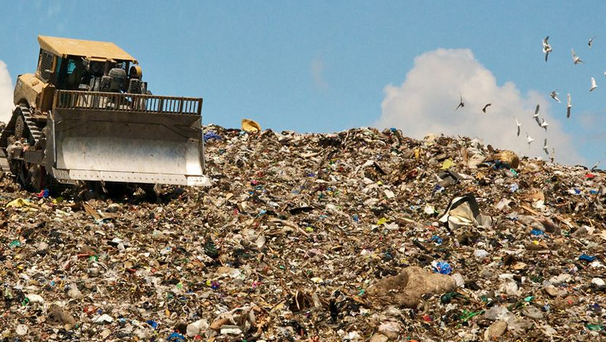A refuse dump
A new report by Global Climate and Health Alliance (GCHA), a body of civil society organisations, says municipal solid waste contributes to about twelve percent of global anthropogenic methane emissions.
Methane is a powerful greenhouse gas (GHG) that accelerates global warming and worsens air quality by contributing to the formation of ground-level ozone, a toxic air pollutant.
The report titled ‘Mitigating Methane from the Waste Sector’, said greenhouse gas can be emitted at any stage of the solid waste management process, from waste collection, treatment, and disposal at landfills.
“Infrequent waste collection can increase the risks of waste disposal at open dumpsites, resulting in methane emissions,” the report reads.
Advertisement
“Globally, the open dumping of waste is the most common waste disposal method, especially among low-income countries with inadequate waste collection services.
“While treating organic waste, including composting and anaerobic digestion (AD), facilities that convert organic waste into useful energy, can reduce methane emissions, methane leakages can occur at treatment facilities that are not regularly and adequately maintained.
“Furthermore, facilities with inadequate capacity to handle large organic waste volumes may store decomposing organic waste in open air, resulting in the direct release of methane into the atmosphere.
Advertisement
“Organic waste disposal and decomposition at improperly managed landfills and dumpsites produces and releases landfill gas, which consists of methane.”
According to the report, the waste sector contributes 3 percent of total global GHG emissions and wastewater contributes to 8 percent of global anthropogenic methane emissions.
It said improving solid waste management will not only cut methane, but also reduce other air, water, and soil contaminants detrimental to human health and the environment.
NIGERIA’S 2030 WASTE METHANE REDUCTION GOALS
Advertisement
In 2018, Nigeria released a National Action Plan to reduce short-lived climate pollutants (SLCPs).
The action plan identified 22 priority measures which include recovering 50 percent of methane from landfills as well as reducing 50 percent from open waste burning by 2030.
According to the report, waste collection and treatment in the country are “an ambitious and expensive task that are often privatised”.
It said cities such as Lagos are making progress on rehabilitating dumpsites but “much work remains to be done”.
Advertisement
The report said compared to a 2010 business-as-usual scenario, the implementation of the action plan would result in an 83 percent reduction in black carbon emissions and reduce national methane emissions by 61 percent by 2030.
“This would also result in an estimated 7,000 fewer premature deaths from air pollution by 2030,” it added.
Advertisement
HEALTH RISKS ASSOCIATED WITH METHANE GENERATED FROM WASTE
The report also found that methane generated by the decomposition of organic waste at landfills, open dumpsites, wastewater storage, and sewage systems can cause the formation of tropospheric ozone, a harmful air pollutant.
Advertisement
It said the improvement of solid waste management and wastewater sanitation would not only mitigate methane, but also curb health risks such as respiratory and cardiovascular diseases.
“Tropospheric ozone leads to adverse health outcomes, such as cardiovascular diseases, asthma, respiratory illness, and premature death,” the statement reads.
Advertisement
“Roughly 1 million people die prematurely every year because of exposure to tropospheric ozone.
“According to the Global Methane Assessment, implementing solutions to reduce waste methane could avoid 45,000 deaths from ozone, 135,000 emergency room visits for asthma symptoms, avoid 5 metric tonnes of crop losses, and avoid 13 billion work hours per year.”
The report concluded that addressing methane emissions from municipal solid waste and wastewater sectors through system improvements is crucial to combating climate change and addressing public health concerns.






